With the working world constantly changing, those active in the labour market face ever new challenges that can only be successfully overcome by concerted action. How companies and their workforces shape their local working environment and working conditions is in many places determined by the complex institutional structures of collective labour relations. These are in turn the result of negotiations between the employers' associations and trade unions at the sectoral and regional level and by management and co-determination bodies at the level of the establishment.
- Home
- Institute
- Main research topics
- The World of Work and Collective Bargaining Policy
The World of Work and Collective Bargaining Policy
Contact Persons

Helena Bach
Economist for Wage Policy and Collective Bargaining
Tel: +49 221 4981-665 Mail: bach@iwkoeln.de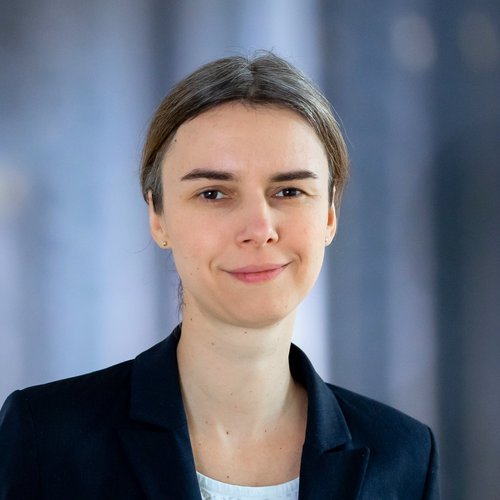
Dr. Andrea Hammermann
Senior Economist for Working Conditions and Human Resource Management Policies
Tel: +49 221 4981-314 Mail: hammermann@iwkoeln.deDr. Hagen Lesch
Head of The World of Work and Collective Bargaining Policy Research Unit
Tel: +49 221 4981-778 Mail: lesch@iwkoeln.de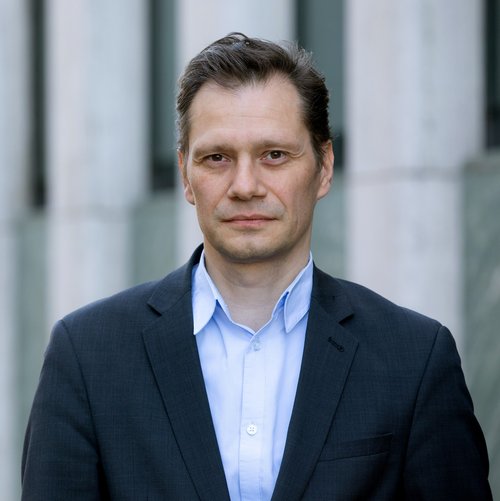
Holger Schäfer
Senior Economist for Employment and Unemployment
Tel: +49 30 27877-124 Mail: Schaefer.holger@iwkoeln.de @HSchaeferIW
Christoph Schröder
Senior Researcher for Income Policy, Wages and Working Time Policy
Tel: +49 221 4981-773 Mail: schroeder.christoph@iwkoeln.de
Dr. Oliver Stettes
Head of The World of Work and Collective Bargaining Policy Research Unit
Tel: +49 221 4981-697 Mail: stettes@iwkoeln.de Oliver Stettes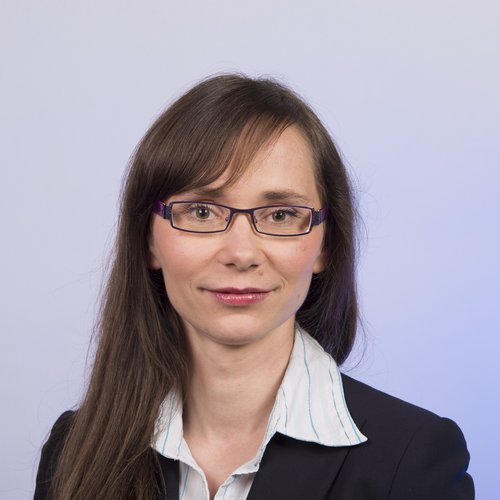
Dr. Sandra Vogel
Senior Researcher for Industrial Relations
Tel: +49 221 4981-746 Mail: sandra.vogel@iwkoeln.de @San_VogelAll news
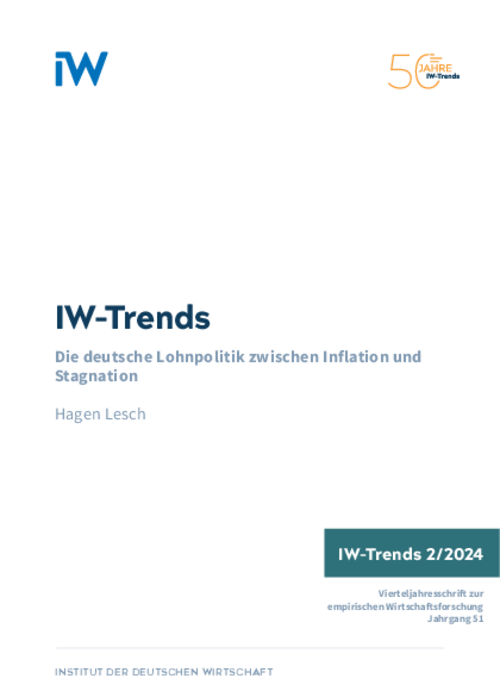
German Wage Policy between Inflation and Stagnation: Are Conflicts with the Aims of Monetary Policy Looming?
After the economic and financial crisis of 2008/9, the German labour market soon began to recover, creating scope for a comparatively expansive wage policy.
Hagen Lesch IW
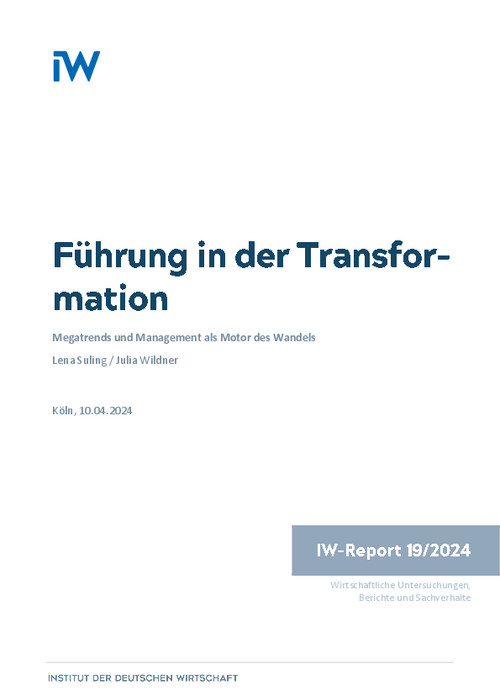
Leadership in transformation: Megatrends and management as a driver of change
Leadership dynamics in companies are subject to constant change in order to meet the challenges of their time. Today, the greatest influences result from developments such as demographic change, globalization, individualization, structural change and technologization in the economy.
Lena Suling / Julia Wildner IW
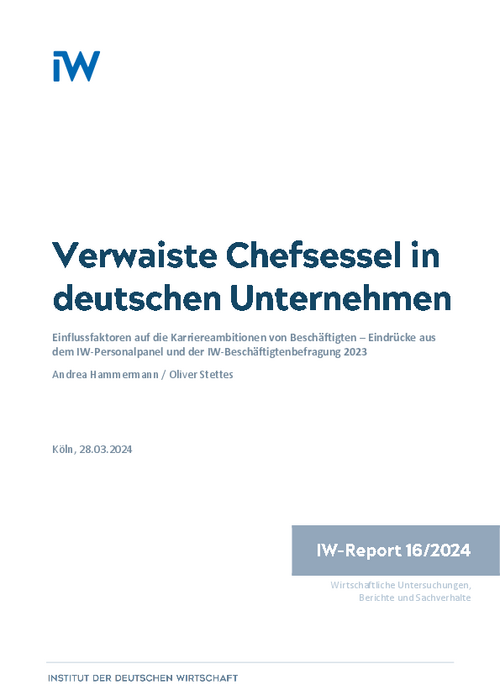
Orphaned executive chairs in German companies
In 2023, half of the companies in Germany reported increasing problems in filling vacancies for management positions because employees are not aiming for a career. Larger companies are less affected than small companies.
Andrea Hammermann / Oliver Stettes IW
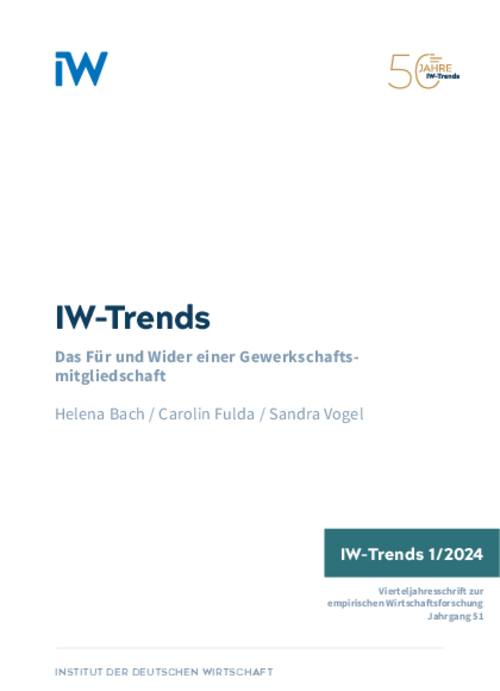
The Pros and Cons of Trade Union Membership
The decline in collective bargaining coverage in Germany is often attributed to the reluctance of companies to join an employers' association which negotiates collective agreements.
Helena Bach / Carolin Fulda / Sandra Vogel IW
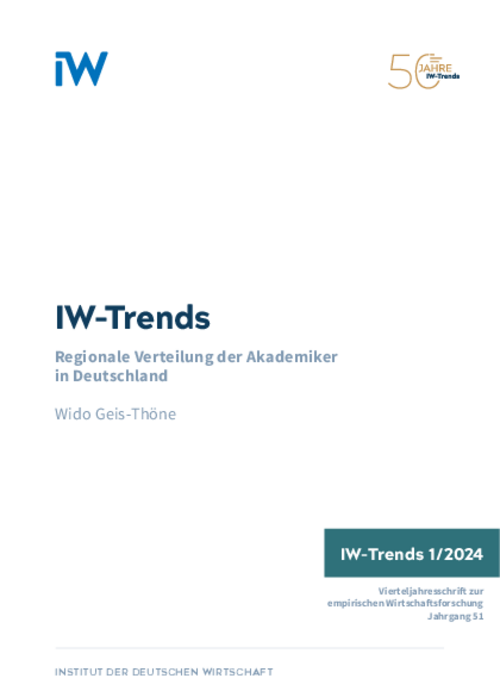
The Regional Distribution of Graduates in Germany
Graduates in Germany are distributed very unevenly across the country. Taking the population aged between 35 and 44, who have generally already completed their higher education, in 2019 the highest proportions of university graduates were to be found in Berlin and the Munich regional planning area.
Wido Geis-Thöne IW
Your search returned an incorrect status. You may have selected too many filters. You can jump back to your previous selection to adjust your search.
With our new newsletters on the following topics you no longer have an IW publication.
We send out our topic-specific newsletters every month.
Register here
With our new newsletters on the following topics you no longer have an IW publication.
![[Translate to Englisch:] iStock](/fileadmin/_processed_/7/c/csm_Arbeiter_Fabrik_iStock-537388330_47601aa9cb.jpg)
